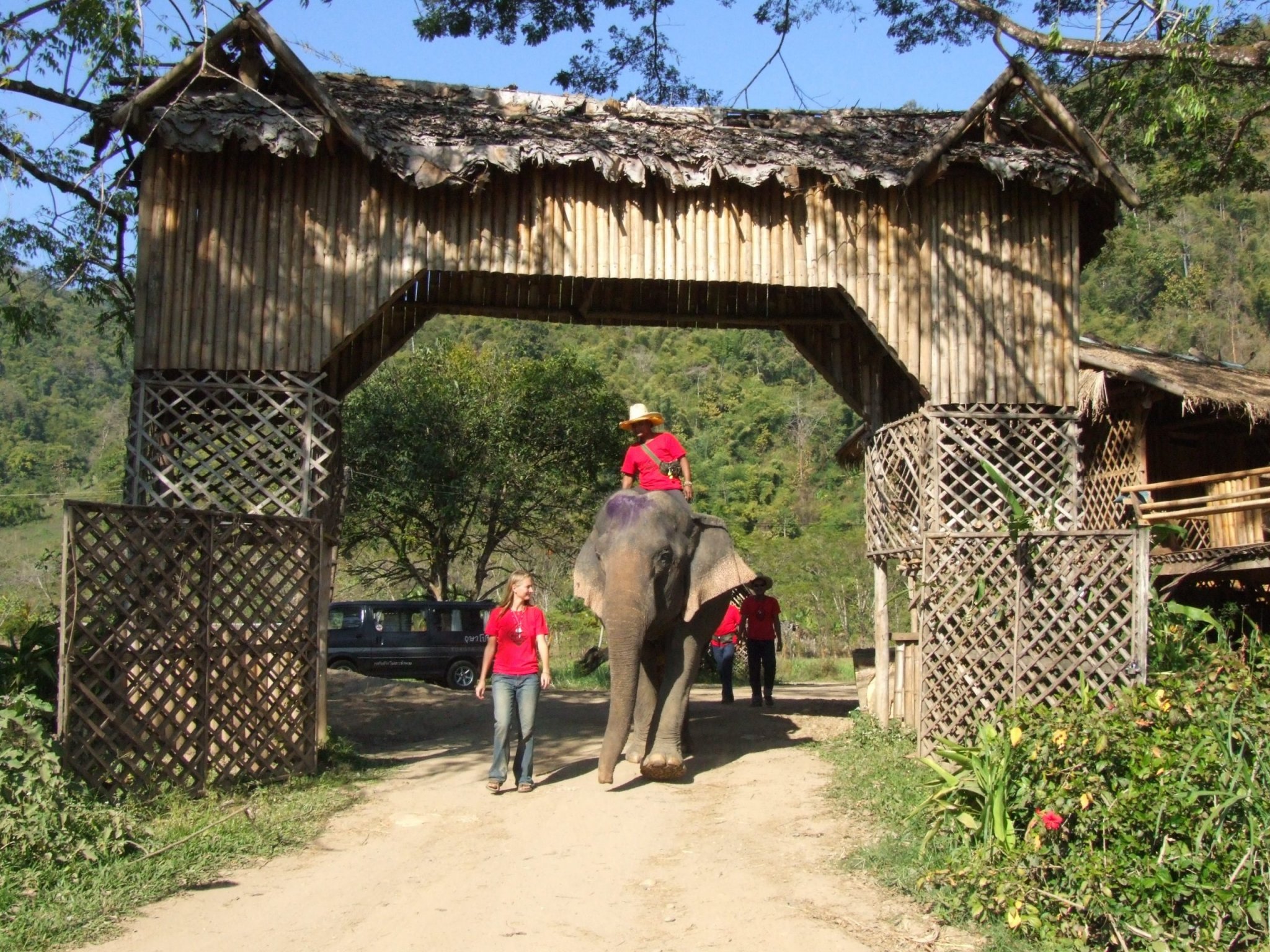By Antoinette van de Water, director and founder of Bring the Elephant Home
In the summer of 2002 I went to Thailand, to volunteer in the Elephant Nature Park, a sanctuary for abused elephants in the North. On my first night in Thailand, in the middle of the crazy Bangkok traffic, I stumbled upon a young elephant. It was covered in wounds and infections, and its mahout asked tourists for money, to feed it. My motivation grew ineradicable roots.
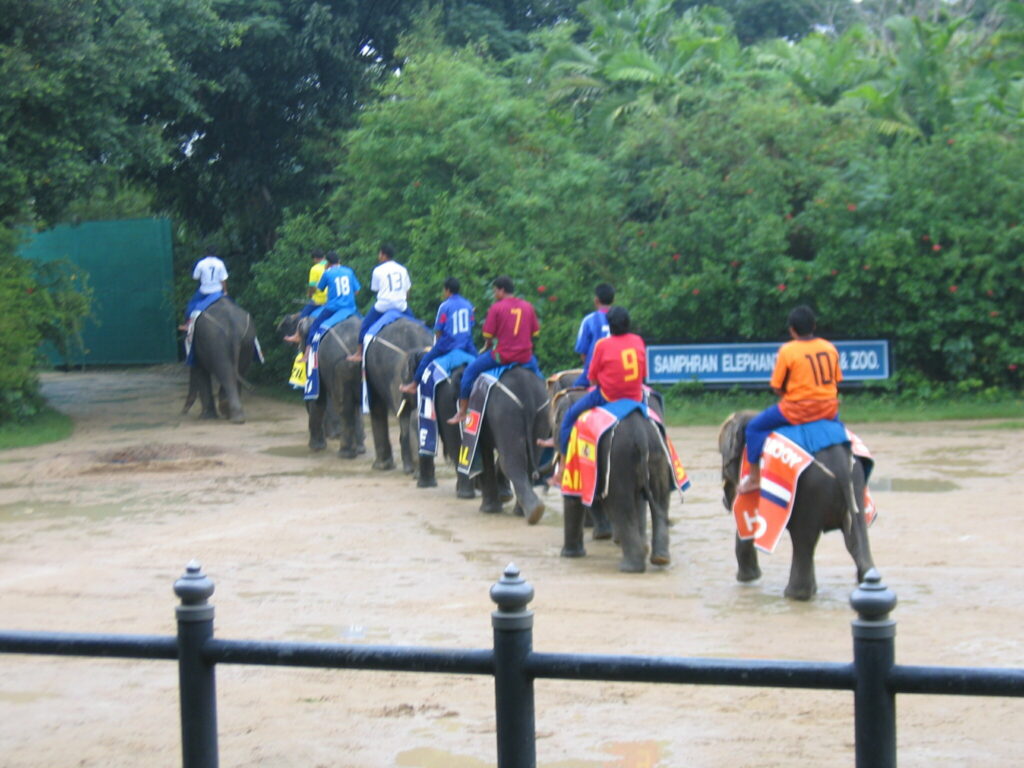
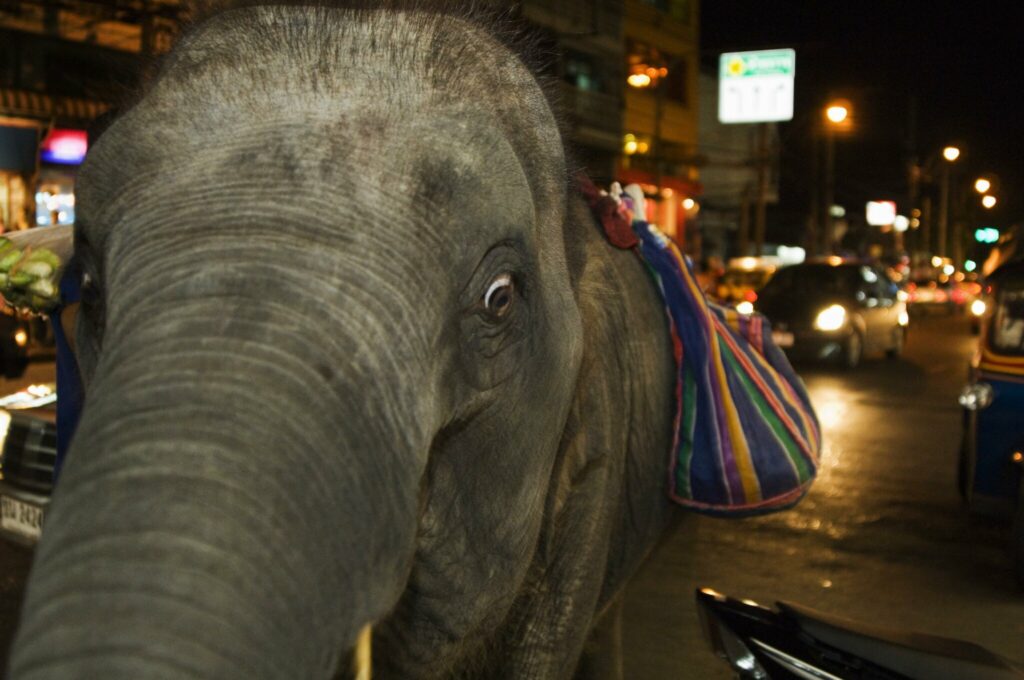
Back in the Netherlands, I couldn’t stop thinking about the street elephants. I wanted to do more than just volunteer, save more elephants and bring the sorry situation of Thai elephants in the public eye. I came up with ‘Bring The Elephant Home’, a demonstrative journey on foot across Thailand with two elephants that I would ransom and take ‘home’ to the Elephant Nature Park.
Thai elephants off the street
In december 2005, after a lot of crowd funding action in the Netherlands, Bring The Elephant Home was able to buy two elephants, five year old Dok Ngeon and 35 year old Sri Nuan. Dok Ngeon had been damaged most: she had many wounds, incurred in the course of a harsh training that was to prepare her for a life in the tourist entertainment industry. Sri Nuan had been used for begging in the streets. She had lost her left eye when a farmer, chasing her from a field she had wandered into, had fired his slingshot at her. Her 8 month old baby Nhung Nhing had been taken from her, to perform in an elephant show for tourists.
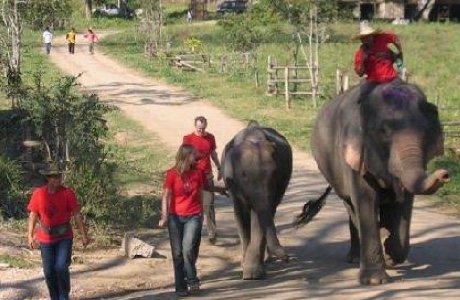
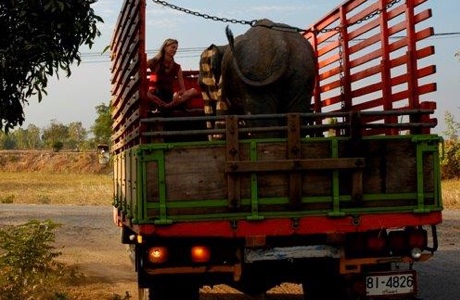
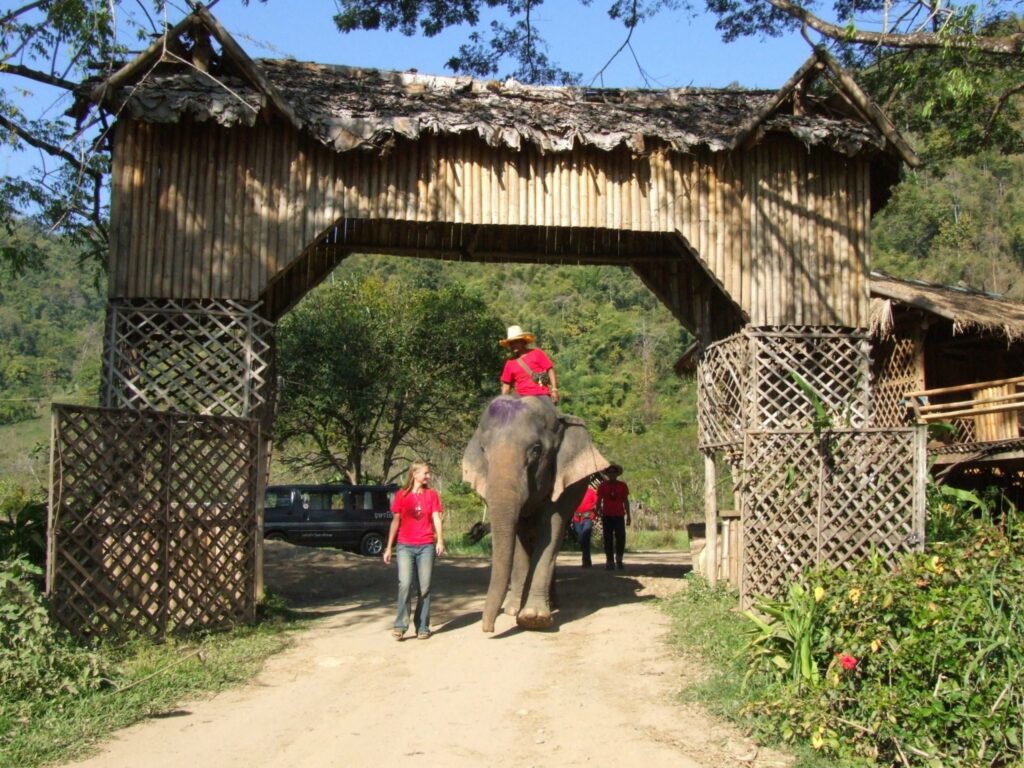
Our journey to the Elephant Nature Park was adventurous, to put it mildly. To begin with, walking with two elephants through the densely populated and road-riddled Thailand appeared to as impossible as it would have been in the Netherlands. We transported the elephants in a truck, and made stops in villages and towns. We talked with people and media about the future of elephants, we played games and spread information in schools, and our mobile animal clinic helped cure of all sorts of diseases of people’s pets.
The journey and our follow-up work contributed to improvement of the living conditions of Thai captive elephants. Many people are now aware that begging with elephants is illegal, and alert the police or the media. Families owning elephants can get a monthly fee from the goverment, provided they won’t take them on begging trips in town. The amount of elephants in the streets has decreased significantly.
Together with the Elephant Nature Park, we have shown how animal-friendly tourism with elephants is possible. The large Dutch travel companies have stopped offering tours with elephant riding and elephant shows. Worldwide, animal-friendly tourism has gained ground as well.
Elephant Nature Park
These day, Sri Nuan and Dok Ngeon lead a more natural life, in a herd in the Elephant Nature Park. Dok Ngeon need time to get accustomed to a life without chains and pain. Initially, she even feared the other elephants, it seemed as if she had forgotten how her kind communicates and behaves. Now she has had two babies, and has claimed her position in the herd. Sri Nuan is on the way to becoming a respected matriarch. The Elephants Nature Park has grown considerably and is financially independent. BTEH has played its part in that, among others by our former adoption programme.
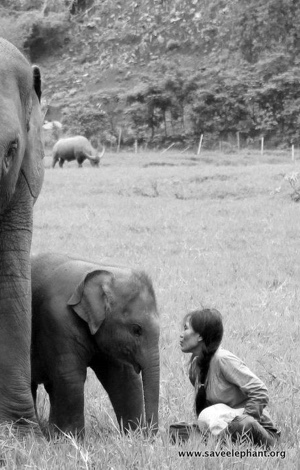
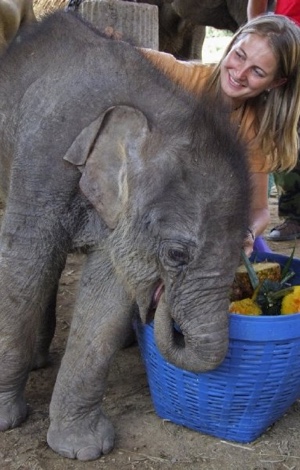
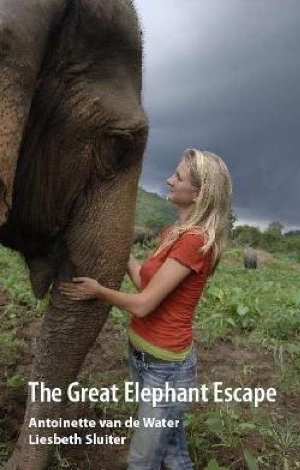
And the beat goes on
The more I learned about elephants, the more I realised that saving individual elephants is not the solution to their survival. If elephants are to remain on this earth outside zoo’s and captivity, we have to protect and expand their natural habitat. Over the years, BTEH changed its course accordingly.
We have gained knowledge about reforestation, and share this in workshops and reforestation events. We have planted over 700.000 trees in Thailand, Cambodia and Borneo. We restore ecosystems through reforesting with an eye to biodiversity, water systems and soil quality. We do all these thing in close cooperation with the local population, and are helped all year round by Thai and international volunteers.
In 2018, I moved to South-Africa, near Kruger Park, where we are now turning a new leaf in the history of Bring The Elephant Home. For details about our work in South-Africa, see our projects Research, Elephant Field Station and Bee the Change.
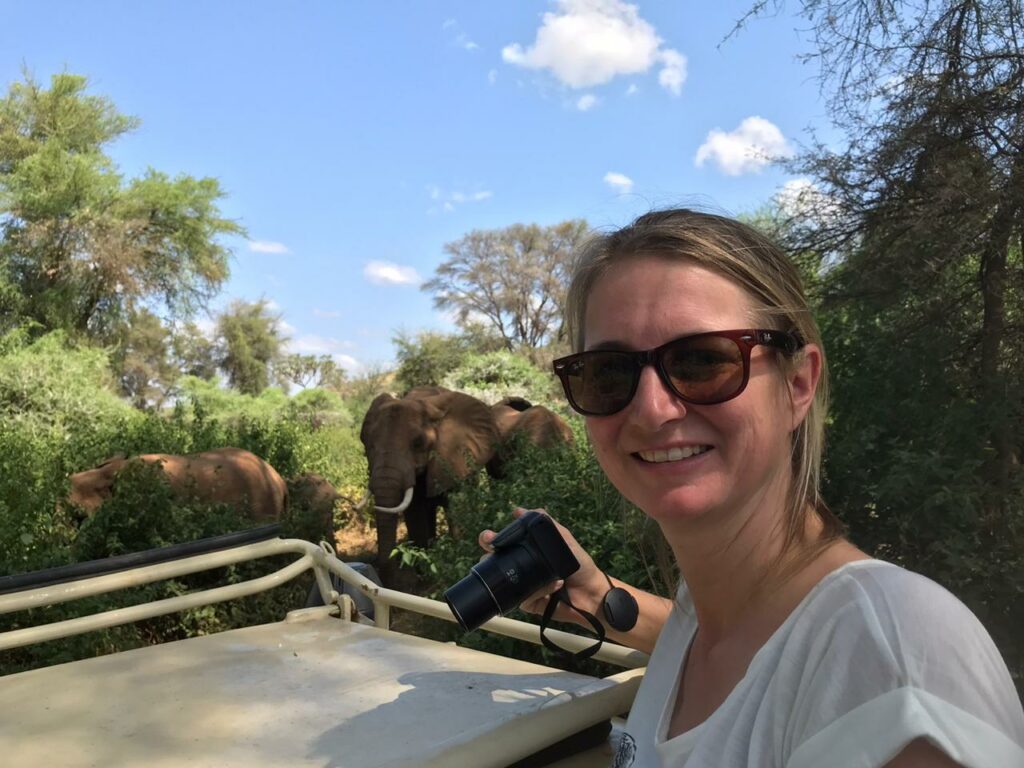
In Thailand as well as in Africa, we are working toward a world in which people and elephants can coexist in harmony. My life is never boring. My motto: you can make a difference, no matter how small. I’ve learned the value of a sense of humor, that following my passion makes me happy, and that I can trust karma.
There is still a lot of work to do. In the years to come the elephants, once again, can count on Bring the Elephant Home. Thank you for your support. Together we will continue to make a difference!
Warm regards, Antoinette van de Water
Please watch “Do animals and therefore elephants have rights?”, my Tedx Talk at TEDx Veghel, on World Animal Day, October 4th, 2019.
Forest Hope
Forest Hope (Jochem van Rijs, Nature Conservation Films, 2018)
